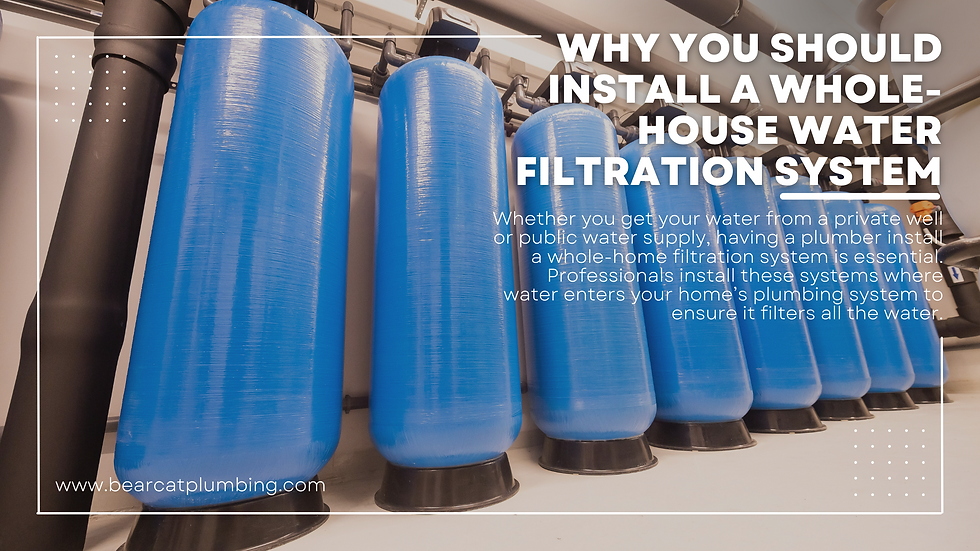Water Softener: What Is It? And How Does It Work?
- Bearcat Plumbing

- May 3, 2023
- 2 min read
Updated: Aug 4, 2023

A water softener is a system that makes water “softer” and perfect for household use. It does that by removing such minerals as magnesium and calcium from hard water. There are several reasons why your local plumber recommends that you rely on soft water for daily use. Some of them are:
• Quicker and easier household cleaning
• Smoother and softer skin
• Reduced energy bills due to improved water heater efficiency
• Whiter and brighter clothes
A water softener works in a fairly straightforward way, as explained below.
1. Ion Exchange
A water softener features a resin tank, which, in turn, features tiny resin beads. These beads play a massive role in the removal of minerals from the water. They are negatively charged; hence, they attract positively charged magnesium and calcium ions, thereby releasing sodium ions.
2. Regeneration
It is important to note that resin beads often become coated with magnesium and calcium ions over time, and this reduces their effectiveness in getting rid of minerals from the water. Needless to say, resin beads have to be regenerated time after time to restore their effectiveness. To do this, the softener will flush the tank with a saltwater solution, which not only gets rid of the minerals that have accumulated over time but also replaces them with sodium ions.
3. Control Valve
A water softener also features a control valve that helps regulate water flow through the resin tank. A control valve also has another function, which is to start off the regeneration process when needed. Some newer water-softening models are equipped with electronic controls that improve their efficiency by adjusting the regeneration schedule based on the amount of water used and other factors.
4. Brine Tank
A brine tank holds the salt needed to regenerate the resin beads. During the regeneration process, the control valve opens so it can draw saltwater from the brine tank and channel it into the resin tank. This flushes out minerals and ensures they are replaced with sodium ions.
To conclude, a water softener is a must-have if your home has hard water. It removes magnesium, calcium, and other minerals, thereby protecting your plumbing system. A water softener can also help extend the lifespan of your appliances and make life generally easier in your home. It is important to understand how a water softener works because this will help you make an informed decision when it comes to choosing the right model.



Comments